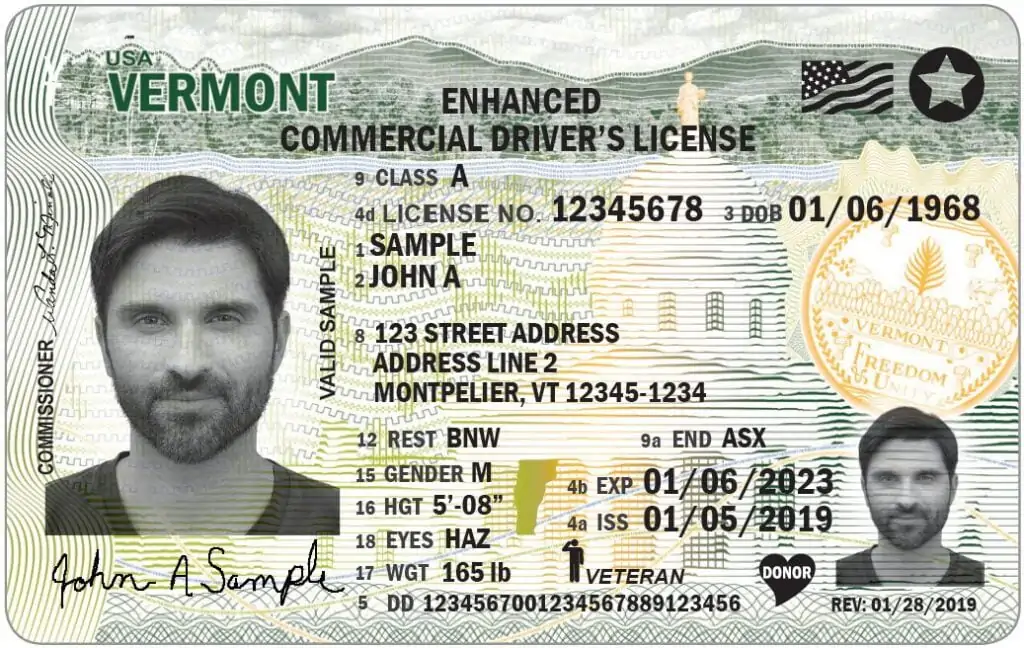Vermont
ID Scanning Laws
Vermont law does not regulate a business’s practice of scanning IDs or retaining information obtained from a scan. However, there are instances where merchants are required to record information related to identity, such as the sale of controlled substances and scrap metal recycling. ID scanning can improve the ease and accuracy of record keeping in these scenarios.




Vermont State Legislature
ID Scanning Resources
The Legal Framework
Vermont ID Scanning Laws and Regulations
In the absence of any statute governing issues associated with a business’s practice of scanning IDs, a business is likely allowed to scan IDs and retain information obtained from a scan, subject to applicable privacy laws.
Affirmative Defense for ID Scanning in Vermont
Vermont does not offer affirmative defense for ID scanning. According to Vermont Title 7: Alcoholic Beverages, Cannabis, And Tobacco, § 658, a person shall not sell or furnish alcoholic beverages to a person under 21 years of age or knowingly enable the consumption of alcoholic beverages by a person under 21 years of age. Violation of this section can result in a fine of not less than $500.00 nor more than $2,000.00 or imprisonment not more than two years, or both.
However, an employee of a licensee or an employee of a State liquor agency, who in the course of employment violates this section, may plead as an affirmative defense that:
- The purchaser exhibited and the employee carefully viewed photographic identification that complied with section 589 of this title and indicated the purchaser to be 21 years of age or older.
- An ordinary prudent person would believe the purchaser to be of legal age to make the purchase.
- The sale was made in good faith, based upon the reasonable belief that the purchaser was of legal age to purchase alcoholic beverages.
Purchase of Nonferrous Scrap, Metal Articles, Proprietary Articles, and Railroad
According to Vermont § 3022, a scrap metal processor may purchase nonferrous scrap, metal articles, proprietary articles, and railroad scrap only if the scrap metal processor complies with all the following procedures:
At the time of sale, the processor:
- Requires the seller to provide a current government-issued photographic identification that indicates the seller’s full name, current address, and date of birth, and records in a permanent ledger the identification information of the seller, the time and date of the transaction, the license number of the seller’s vehicle, and a description of the items received from the seller.
Possession And Control Of Regulated Drugs
According to Vermont Statute. Title 18. Chapter 084: Possession And Control Of Regulated Drugs, prior to completing a sale under subsection (b) of this section, a retail establishment shall require the person purchasing the drug product to present a current, valid, government-issued identification document. The retail establishment shall record in the electronic registry system:
- The name and address of the purchaser.
- The name of the drug product and quantity of ephedrine, pseudoephedrine, and phenylpropanolamine base sold in grams.
- The date and time of purchase.
- The form of identification presented, the issuing government entity, and the corresponding identification number.
Please note that this information is intended to provide a general overview and does not constitute legal advice. Always consult with a legal professional for advice specific to your situation
Vermont Anti-Trafficking Network
Our Fight Against Human Trafficking



Knowledge Base
Frequently Asked Questions
Yes, Vermont law does not regulate a business's practice of scanning IDs or retaining information obtained from a scan.
Yes, such as the sale of controlled substances and scrap metal recycling.
Violation of this section can result in a fine of not less than $500.00 nor more than $2,000.00 or imprisonment not more than two years, or both.
The employee can plead as an affirmative defense that the purchaser exhibited and the employee carefully viewed photographic identification that complied with section 589 of this title and indicated the purchaser to be 21 years of age or older.
The seller is required to provide a current government-issued photographic identification that indicates the seller’s full name, current address, and date of birth.
The name and address of the purchaser, the name of the drug product and quantity of ephedrine, pseudoephedrine, and phenylpropanolamine base sold in grams, the date and time of purchase, and the form of identification presented, the issuing government entity, and the corresponding identification number.
